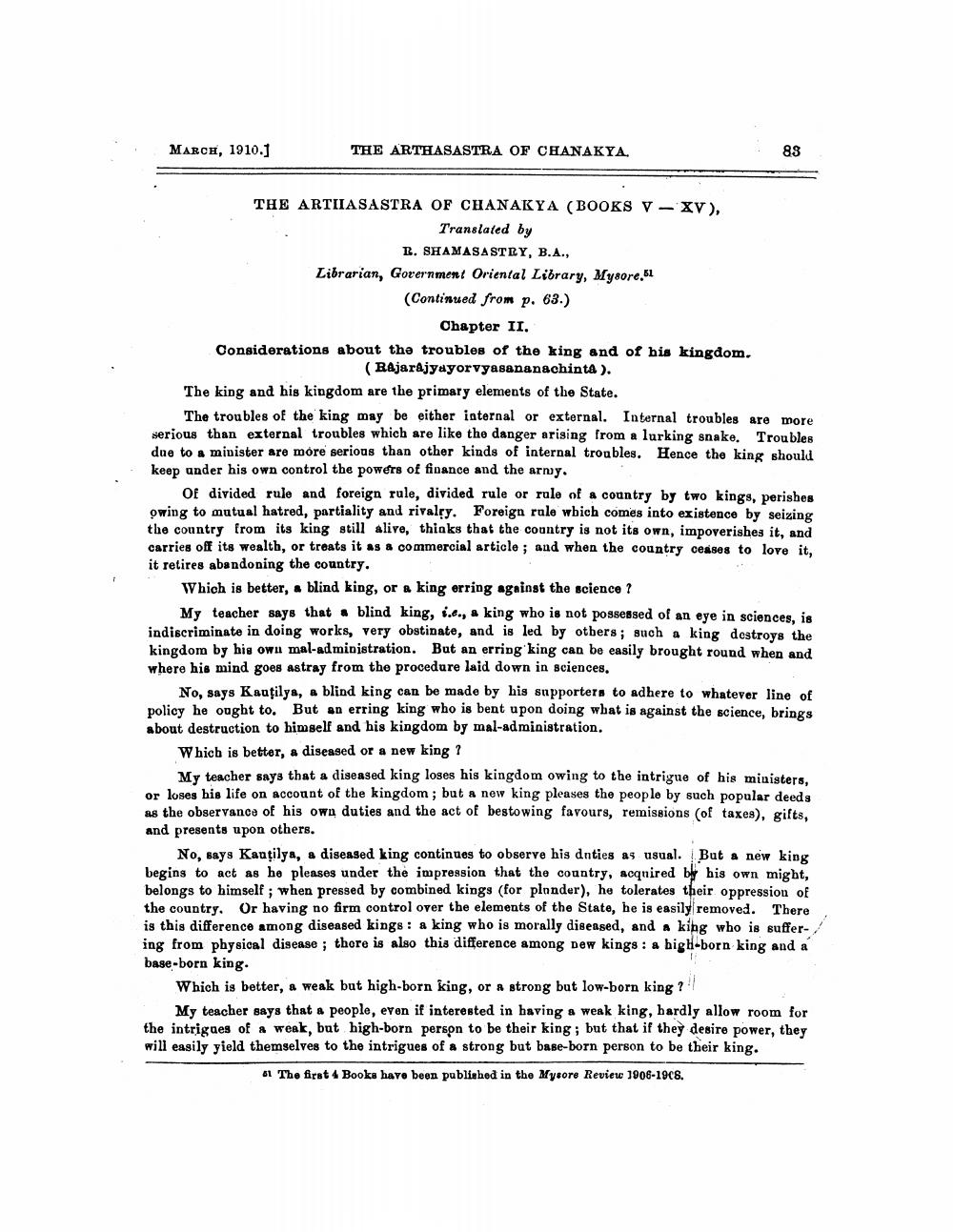________________
MARCH, 1910.)
THE ARTHASASTRA OF CHANAKYA.
83
THE ARTIIASASTRA OF CHANAKYA (BOOKS V-XV),
Translated by
B. SHAMASASTRY, B.A., Librarian, Government Oriental Library, Mysore.51
(Continued from p. 63.)
Chapter II. Considerations about the troubles of the king and of his kingdom.
(Rajarajyayorvyasananachinta ). The king and his kingdom are the primary elements of the State.
The troubles of the king may be either internal or external. Internal troubles are more serious than external troubles which are like the danger arising from a lurking snake. Troubles due to a minister are more serious than other kinds of internal troubles. Hence the king should keep under his own control the powers of finance and the army.
Of divided rule and foreign rule, divided rule or rule of a country by two kings, perishes owing to mutual hatred, partiality and rivalry. Foreign rule wbich comes into existence by seizing the country from its king still alive, thinks that the country is not its own, impoverishes it, and carries off its wealth, or treats it as a commercial article ; and when the country cesses to love it, it retires abandoning the country.
Which is better, a blind king, or a king erring against the science ?
My teacher says that a blind king, i.o., a king who is not possessed of an eye in sciences, is indiscriminate in doing works, very obstinate, and is led by otbers; such a king destroys the kingdom by his own mal-administration. But an erring king can be easily brought round when and where his mind goes astray from the procedure laid down in sciences.
No, says Kautilya, a blind king can be made by his supporters to adhere to whatever line of policy he ought to. But an erring king who is bent upon doing what is against the science, brings about destruction to himself and his kingdom by mal-administration.
Which is better, a diseased or a new king ?
My teacher says that a diseased king loses his kingdom owing to the intrigue of his ministers, or loses his life on account of the kingdom; but a new king pleases the people by such popular deeds as the observance of his own duties and the act of bestowing favours, remissions of taxes), gifts, and presents upon others.
No, says Kautilya, a diseased king continues to observe his dnties as usual. But a new king begins to act as he pleases under the impression that the country, acqnired by his own might, belongs to himself ; when pressed by combined kings (for plunder), he tolerates their oppression of the country, Or having no firm control over the elements of the State, he is easily removed. There is this difference among diseased kings: a king who is morally diseased, and a king who is suffering from physical disease ; there is also this difference among Dew kings : a high-born king and a base-born king.
Which is better, a weak but high-born king, or a strong but low-born king?!!
My teacher says that a people, even if interested in having a weak king, hardly allow room for the intrigues of a weak, but high-born person to be their king; but that if they desire power, they will easily yield themselves to the intrigues of a strong but base-born person to be their king.
61 The first 4 Books have been published in the Myrore Review 1906-1968.




